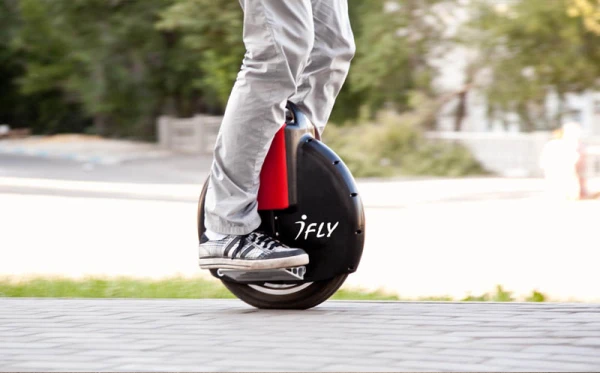
The Ministry of Transport has developed and submitted for approval amendments to the traffic rules, which provide for mandatory civil liability insurance (OCTA) for various micro-mobility vehicles—including monowheels, electric skateboards, and other electric sports devices.
According to the Ministry of Transport, the introduction of mandatory insurance for micro-mobility vehicles will increase the responsibility of their owners and ensure compensation for damages in case of accidents. Moreover, this will help reduce the number of conflicts between users of such vehicles and other road participants, as stated in the information published on the legal acts portal.
The draft regulations emphasize that the current rules do not correspond to the modern level of technological development. In particular, the issue of using electric devices for sports and recreation—such as roller skates, monowheels, electric skateboards, and other similar means of transportation—is not regulated, and the lack of clear regulation creates legal uncertainty.
The amendments stipulate that owners and users of electric micro-mobility vehicles—such as monowheels, roller skates, skateboards, and other similar electric devices—will be required to obtain civil liability insurance (OCTA). This measure aims to ensure compensation for damages to third parties in the event of traffic accidents caused by the use of such devices.
The ministry notes that the Saeima supported the amendments to the traffic law in the third reading, which stipulate that depending on the technical parameters of the two-wheeled moving device resembling a bicycle, the vehicles are divided into three groups with different regulations for participation in traffic.
Until now, the law contained a single definition for all electric bicycles with a power of up to 1 kilowatt (kW) and a maximum speed of 25 kilometers per hour (km/h).
In the future, in the classification of the three groups, the first group will include bicycles powered solely by muscular force—by means of pedals or levers. No changes are provided for the bicycles themselves in the law. Participation in traffic on them is permitted from the age of ten with a bicycle driving license; until the age of 16, wearing a helmet is mandatory. Bicycles can be used on sidewalks. The agency also recommends registering bicycles, as this will help recover them in case of theft.
The second group will include electric bicycles with an additional electric drive of up to 250 watts (W), which is disabled when the speed exceeds 25 km/h, meaning the motor assists only when pedaling. Participation in traffic on such electric bicycles is allowed from the age of 14, and registration is voluntary. The same requirements as for regular bicycles remain: mandatory helmet use until the age of 16 and possession of a bicycle driver's license.
The third group will consist of self-propelled bicycles with a power of up to 1 kW and a maximum speed of up to 25 km/h, for which continuous pedaling is not required. It is stipulated that such vehicles will not be allowed to move on sidewalks, and from February 1, 2026, registration and possession of civil liability insurance (OCTA) will be mandatory for them.
Participation in traffic on self-propelled bicycles will be allowed from the age of 14, with mandatory helmet use until the age of 16.
It is expected that from May 1, 2026, a fine may be imposed for moving on an unregistered vehicle and for the absence of an OCTA policy.
Additionally, the amendments stipulate that providers of all public transport vehicles must ensure age verification of the client, the presence of a driving license, and reaction speed. The solution will be integrated into the rental service provider's application; for example, before receiving the service, a logic and reaction test must be completed, which a person under the influence of intoxicating substances may not be able to finish.
As reported, on Thursday, November 6, the Saeima adopted the amendments to the traffic law prepared by the Ministry of Transport, which include the introduction of a reaction test to identify the risk of alcohol or other intoxicating substance use before using shared transport.













Leave a comment